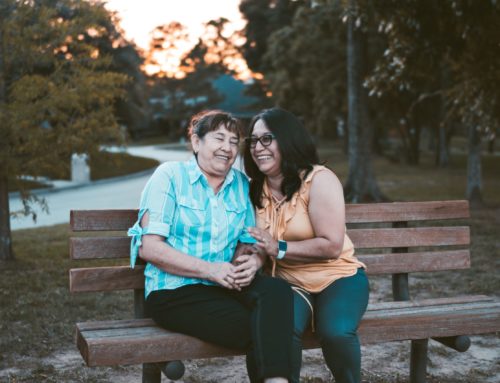Trauma Informed Care is a practice based on the understanding of and responsiveness to the impact of trauma.
Trauma is a natural response to a life-threatening experience.
Trauma can be caused by a single event or repeated exposure to trauma.
Trauma can be caused by an event that is directly experienced, witnessed, or learned about.
Trauma Informed Care focuses on four key areas: safety, trustworthiness, choice, and collaboration.
When it comes to trauma informed care, there are four key areas that you will want to focus on. These areas include safety, trustworthiness, choice and collaboration.
Safety is the first pillar of trauma informed care because it is important for people who have experienced trauma to feel physically and emotionally safe in order for them to progress through their healing process.
Trustworthiness is another pillar because when someone trusts you enough to open up about their experience with trauma or other issues they may be facing in their lives; this makes them more willing to collaborate with you so that together you can help find solutions for their problems.
The third pillar of choice means being given choices whenever possible so that no one feels forced into something they don’t want or need at any given moment.
Finally collaborative approaches allow everyone involved with each participants’s treatment plan work together as equals.
Safety: Ensuring physical and emotional safety in all interactions.
The importance of safety is a key component of trauma-informed care. It’s not just about physical safety—it’s also about emotional safety. Safety is best understood as an environment, relationship, and process that ensure that all interactions are safe for both you and your clients/patients.
-
The environment: This includes creating a safe space for people to access services without fear of being judged or attacked physically or emotionally.
-
The relationship between everyone involved: The service provider(s), their team members, and the client should all be able to trust each other as equals when interacting with one another for the client’s best interest (not just the service provider’s). They should also feel free to ask questions if they don’t understand something or want more information; talking through things together will help build trust between everyone involved in providing services.
Trustworthiness: Being worthy of trust while also providing an environment of trust.
Trustworthiness is an essential component of any healthy relationship. Trust is not a one-time event. It’s something that is earned and must be worked on daily, for it to remain strong. Trust is not given; it’s earned by being worthy of trust yourself and by providing an environment of trust for others.
Trustworthiness also enables rapport building which is a quintessential to trauma recovery. By enabling new understandings and experiences of relationship dynamics, old patterns and known experiences can be identified in relation to the individuals with which these occurred as opposed to an application to all future relationships.
Choice: Providing opportunities for individual empowerment, self-advocacy, and self-determination.
The key to building trust is giving people the opportunity to make choices for themselves. Trauma can cause people to lose their sense of choice, control, autonomy, and self-determination. Traumatised individuals often feel that their lives are out of control: they may feel confused about why things are happening the way they are; they may worry that others will not listen to them or understand them; and they may believe that no one can help them solve their problems. This loss of choice causes anxiety and mistrust in relationships because traumatised individuals do not have faith in others’ ability or willingness to support them when it comes down to making decisions on their own behalf.
The importance of helping traumatised people regain a sense of empowerment through choice cannot be overstated because it is crucial for empowering survivors with self-advocacy skills (both legal rights/responsibilities and personal decision-making capacity), providing opportunities for creative expression, increasing participation in age appropriate activities at school or work etc., while helping reduce feelings of helplessness during times when such choices become available again (i.e., holidays). Mutual respect and a breakdown of the typical medical constructs that enable a power dynamic between the person and service provider are to be abandoned. The service provider recognises the individual’s unique strengths and acts as a resource to patient and the goals they self determine as priorities.
Collaboration: Internal and external relationships that support healing and well-being.
Collaboration is a key component of trauma informed care. It refers to working together to achieve a common goal, building relationships between people and organisations, bringing people together to solve problems, or creating opportunities for individuals with diverse backgrounds and perspectives to share their knowledge—all in service of the community’s well-being.
One of the primary goals of collaboration is to build trust among those involved so that they can work efficiently together on a project or issue. When there is trust in an organisation, people feel comfortable being honest about their feelings so that situations can be resolved effectively; if everyone feels safe expressing themselves in this way there will be less conflict within the group which leads directly towards increased productivity levels overall!
When people have experienced trauma, the way they interact with their physical and mental health changes.
-
People may have trouble trusting others – including their doctors, nurses and other healthcare providers.
-
People may have trouble trusting themselves.
-
People may have trouble trusting the world around them.
-
People may have trouble trusting their bodies or their minds to work properly.
-
People might not be able to trust certain emotions or memories because of what has happened to them in the past.
Conclusion
Trauma Informed Care is a practice based on the understanding of and responsiveness to the impact of trauma. It focuses on four key areas: safety, trustworthiness, choice, and collaboration. When people have experienced trauma, the way they interact with their physical and mental health changes. Trauma Informed Care helps to create an environment where individuals can heal in a supportive manner that respects their experiences and needs.
Trauma Informed Care also helps to abolish longly held disempowering dynamics widely held in medical practice and ushers in a new era where the patient steers the direction and ultimately holds the responsibility of overall physical and mental wellbeing. Empowerment translates to better holistic, sustained health outcomes and a disintegration of previous psychological barriers to care.



